Books I Loved in 2023
TL;DR: I read 25 books in 2023, which also came with some major changes to how I carve out time for reading. Here are the best books I read.
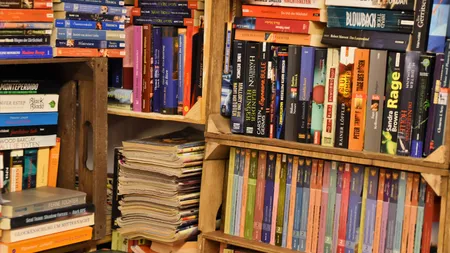
Image credit: Waldemar
I read 25 books in 2023. My goal was 24, which I’ve hit every year for a few years now, but I have a secret: A good chunk of the books I was reading were actually books I was reading to my son John. We read Lord of the Rings, some Harry Potter, some Hitchhiker’s Guide, and some Discworld books. But about a year ago, he kinda grew out of this phase and didn’t want me to read to him at bedtime anymore. Which is fine, I love that he let me for so long and that I was able to pass along a love of reading.
But it did mean that I lost a pile of books that I would have read otherwise, and I had less reading time overall, because I wasn’t sitting in his room reading my own books while he fell asleep. So the fact that I still hit my goal feels good, but it does tell me that in 2024, I need to be more intentional about carving out time to read.
Until then, here are the best books I read in 2023.
-
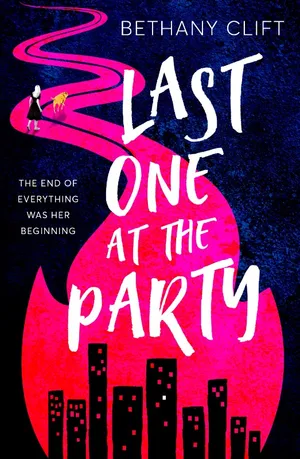
Last One at the Party, by Bethany Clift
The basic premise is “What if the person who survived the end of the world was uniquely unsuited for post-apocalyptic life?”
Presented as a series of journal entries documenting how she deals with the complete collapse of the world (hint: poorly, then VERY poorly, then less poorly). It’s funny and charming at times, depressing and overwhelming at others, and generally does a good job of feeling like a realistic look at how someone with no survival skills would handle things.
I liked this so much that I recommended it to my wife, which happens infrequently enough to be noteworthy.
Content warnings: This book features a dog and a pregnancy, and I’ve added an entry on DoesTheDogDie.com if you'd find that helpful.
-
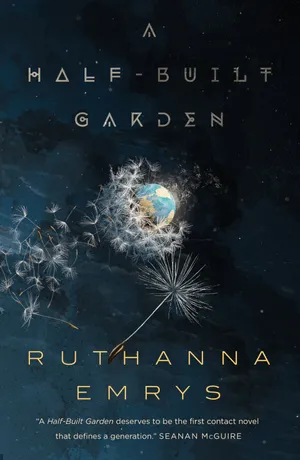
A Half-Built Garden, by Ruthanna Emrys
A fascinating first-contact story about aliens landing in the Chesapeake Bay, where they are met by Judy, a woman from an ecological commune called a watershed network. The aliens are here to encourage (or force) humanity to flee the planet, but Judy isn’t ready to abandon the restoration work they’ve been doing — or allow the exiled remnants of corporations and nation-states to make the decision for everyone else.
It’s the best kind of hopeful queer science fiction. I loved every part of this story, and I bet you will too.
-
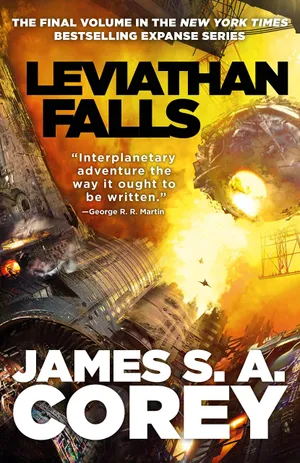
Leviathan Falls, by James S.A. Corey
I’ve told you before how much I love the Expanse series, but I put off reading the final books in the series for some time. The TV series caught up to me when I finished book five, and I opted to watch season six without reading the book to avoid spoilers.
So now that the show is over (or at least on hiatus for a time?), I came back to the books. Book six was a quick read, covering the same events as the show (though the shortened final season had to cut quite a lot of stuff). But book seven jumps several years into the future, following the crew of the Rocinante as they deal with the complex reality after the opening of the gate network.
I can’t really say much about it without spoiling anything, so I’ll just say that I thought this was a solid ending to the story. The final scenes with each character felt genuine and earned. If you’ve watched the show or read the books you know enough to not expect a happy-ever-after, but everyone ends up somewhere satisfyingly true to their characters.
-
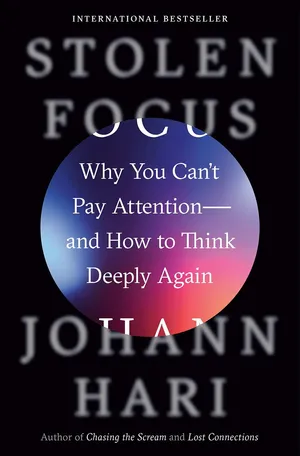
Stolen Focus: Why You Can’t Pay Attention—and How to Think Deeply Again, by Johann Hari
I’ll be honest: The first two times Chuck recommended this book to me, I kinda shrugged him off. It sounded like a self-help book, where the author would dive into a lot of stuff I already know about how social network algorithms are designed to keep us clicking, and ending with some trite advice that boils down to “take Twitter off your phone” and “have more self-control.”
But the thing about Chuck is that he’s got ADHD so sometimes he’ll recommend something to me repeatedly by mistake. In this case, in three different conversations, weeks apart, something I said about burnout or focus triggered him to recommend it. And by the third time, I realized I needed to check it out.
That said, I very nearly rage-quit this book. The first few chapters are some of the most insufferable shit I’ve ever read. He shares an infuriating anecdote about harassing visitors to Graceland and then snatching the phone out of his teenage nephew’s hand and yelling at him in public, all with a smug “am I the only one who sees what’s happening” vibe. After that, he talks in the most eye-rolling way about the difficulties he faced during a three-month digital detox while staying in a cabin on the beach.
But one night as I was angrily complaining about the book to Annie, she asked if there was anything valuable, and I was forced to concede that the chapter I’d just read had an interesting bit. I asked her to pass me a highlighter, and I marked it down so I wouldn’t lose it. Then I went back to the chapters I’d already finished and I found at least one or two valuable passages to highlight in each. So I resolved to keep reading, highlighting the worthwhile bits as I went.
And I’m glad I did, because the book makes a pretty remarkable shift about halfway through, moving away from “here’s what I learned on my digital detox” with an emphasis on individual actions into a strongly condemning discussion about the systemic problems that we all face that mean individual actions are unlikely to address attention problems for most people.
From that point, the book is really about the author getting slowly radicalized by how our attention has been stolen from us, and discussing the broad changes that we need to make, from outlawing surveillance capitalism to addressing nutrition, to the way that children are no longer allowed to play or have unstructured time.
I thought this was a self-help book, but it’s not. It’s a call to action, and I think everyone should read it.